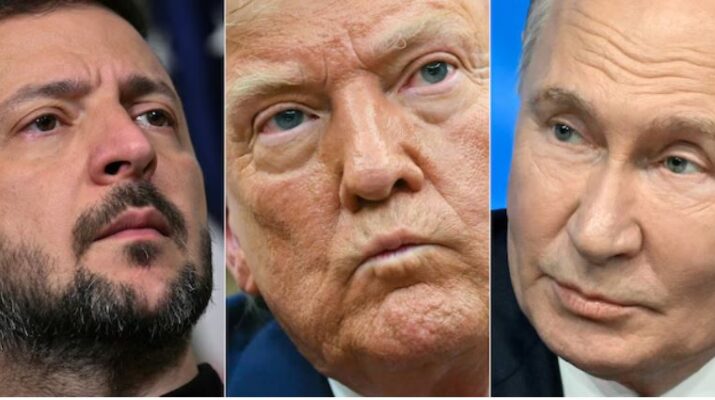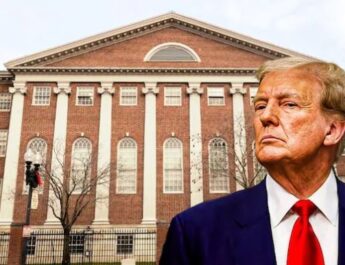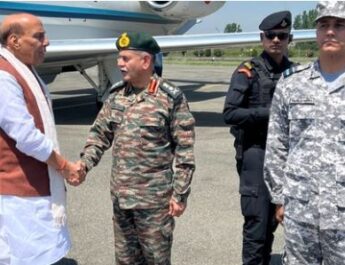After four months of being misled by Vladimir Putin, President Donald Trump seems to finally be recognizing the Russian dictator’s malevolence. Each attempt by Trump to conclude the three-year conflict in Ukraine, including his calls for an immediate ceasefire, has been thwarted by Putin. Following yet another extended weekend of Moscow bombarding Kyiv, the U.S. president is contemplating new sanctions against Russia. Coupled with increased military support for Ukraine’s defense and the approval of additional European aid, this approach would be a significantly more effective means of resolving the conflict than any measures Trump has pursued thus far.
On Tuesday, he accused Putin of “playing with fire” and admitted that he has, until now, been shielding Russia. “If it weren’t for me, many truly negative events would have already transpired for Russia,” Trump stated on social media. Although he has exhibited moments of frustration in recent weeks, Trump notably altered his tone on Sunday. “I don’t know what the hell happened to Putin,” he remarked. “I have always gotten along with him, but he’s launching rockets into cities and killing people, and I find it completely unacceptable.”
Hours later, Russia initiated its largest drone assault of the war. The bombardment on Sunday involved 355 drones, concluding a weekend that witnessed the deployment of 900 drones and 69 cruise missiles. Ukraine’s Interior Ministry reported that over 80 residential structures were damaged, including college dormitories, and civilians, including children aged 8, 12, and 17, lost their lives across various regions. Further aggravating Trump, Putin’s spokesperson Dmitry Peskov dismissed the president’s criticisms as “emotional.”
In the meantime, conscripted Russian forces have initiated what seems to be a significant summer offensive along a 620-mile front line. Alarmingly, Russia has increased its use of fiber-optic drones that are immune to jamming systems. These hardwired weapons may have a shorter range, but they offer a longer battery life and enhanced targeting precision — a vital advantage on the battlefield.
What concerns Ukraine more than the drones, however, is its dwindling supply of U.S.-made Patriot air defense systems. Only Patriot launchers can reliably counter ballistic missiles launched by Russia. On Saturday night, Ukraine was unable to intercept nine of these missile launches. Secretary of State Marco Rubio testified last week that the United States has exhausted its supply of Patriots to provide but has been “encouraging” NATO allies to contribute theirs — although they are also hesitant to part with their systems. Fortunately, European nations are increasing their support in other ways. On Monday, German Chancellor Friedrich Merz announced that Germany, France, and Britain will no longer restrict Ukraine’s use of longer-range weaponry.
As long as Putin believes he can achieve military success, he will not agree to a deal to end the conflict. When Trump continues to criticize Ukrainian President Volodymyr Zelensky on social media, it gives Putin reason to believe he can create a rift between the U.S. and Ukraine. Additionally, when Vice President JD Vance states, “we’re more than open to walking away” if a deal cannot be reached, he also encourages Russian delays.
The U.S. must not yield to Russia’s obstinacy and abandon peace negotiations. The conflict in Ukraine represents the proxy war of our era between the free world and autocratic regimes that hold contempt for America and Europe. North Korea supplied some of the missiles that fell over the weekend. Iran developed the drones. Trade with China finances the weapons.
It is not surprising that Trump has struggled to bring the war to a close. No one could have realistically achieved peace in just 24 hours, as he claimed during his campaign. Trump is not the first president to discover that Putin is a complex figure. George W. Bush looked into his “soul” and perceived someone reliable and candid. Barack Obama attempted a “reset” but failed to take decisive action when Russia annexed Crimea in 2014.
Putin remains unchanged, but if labeling the Russian leader as “crazy” allows Trump to maintain his image and adopt a tougher stance, that is acceptable. Putin is more inclined to react to displays of strength rather than polite gestures. Trump should recognize this.
A current initiative in Congress aims to provide Trump with increased leverage. Senators Lindsey Graham (R-South Carolina) and Richard Blumenthal (D-Connecticut) have proposed a bill that would empower Trump to impose tariffs of up to 500 percent on nations purchasing Russian oil, gas, and uranium. This legislation has garnered support from 81 Senate co-sponsors and is likely to pass through the House.
The potential for significant secondary sanctions could convince India and China to cease their purchases of Russian energy, thereby undermining Russia’s military capabilities. Coupled with stricter direct sanctions against Russian officials and enhanced support for Ukraine, this could compel Putin to pursue a resolution to the conflict.




